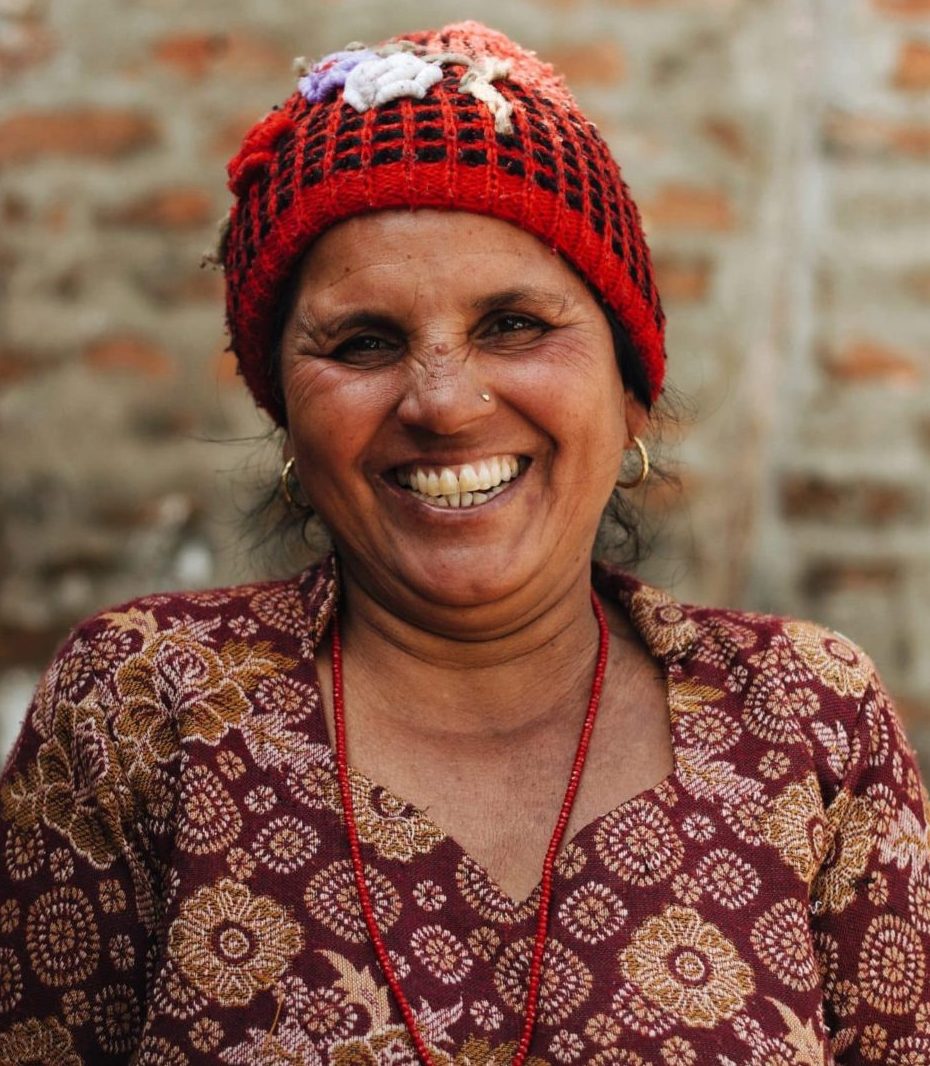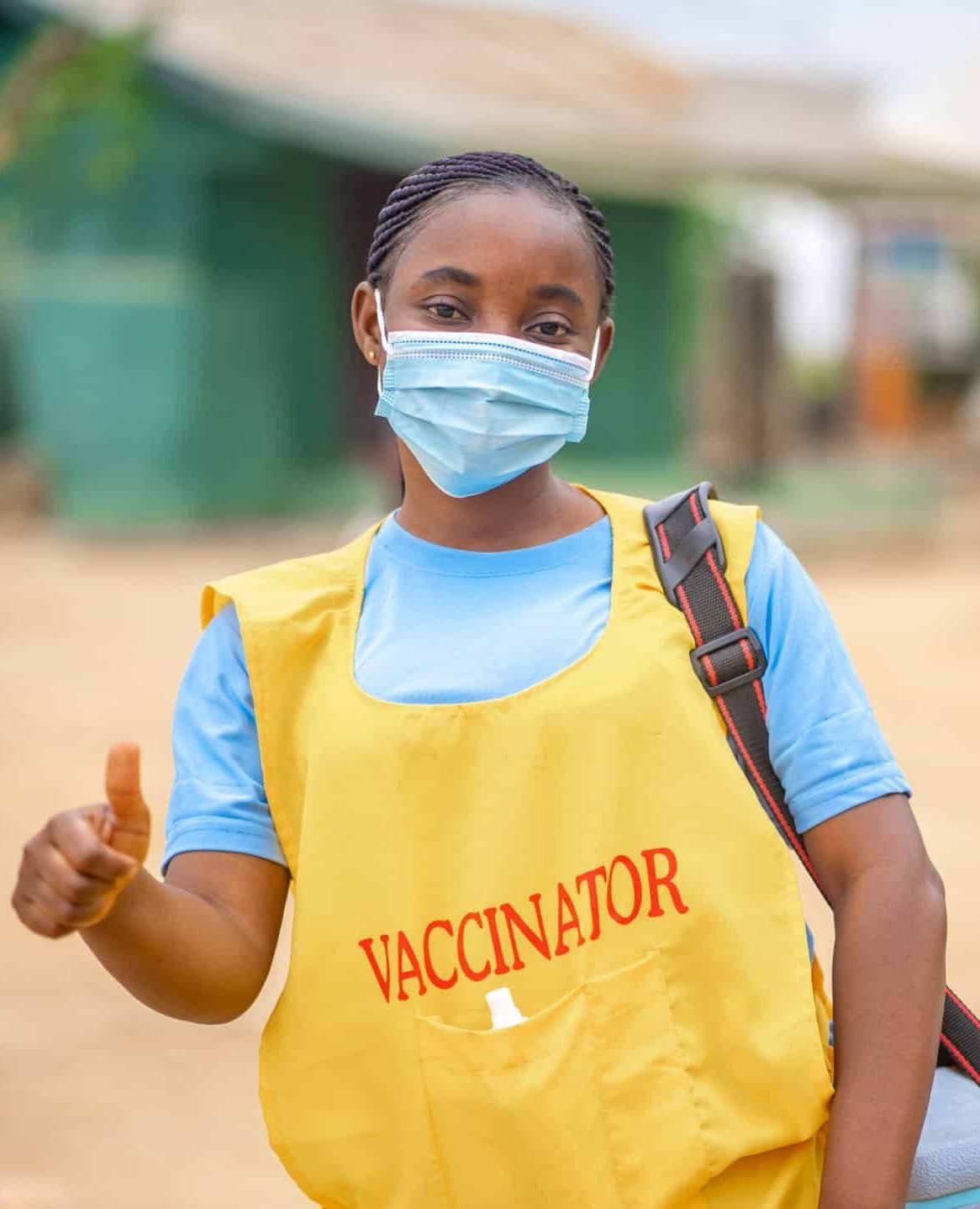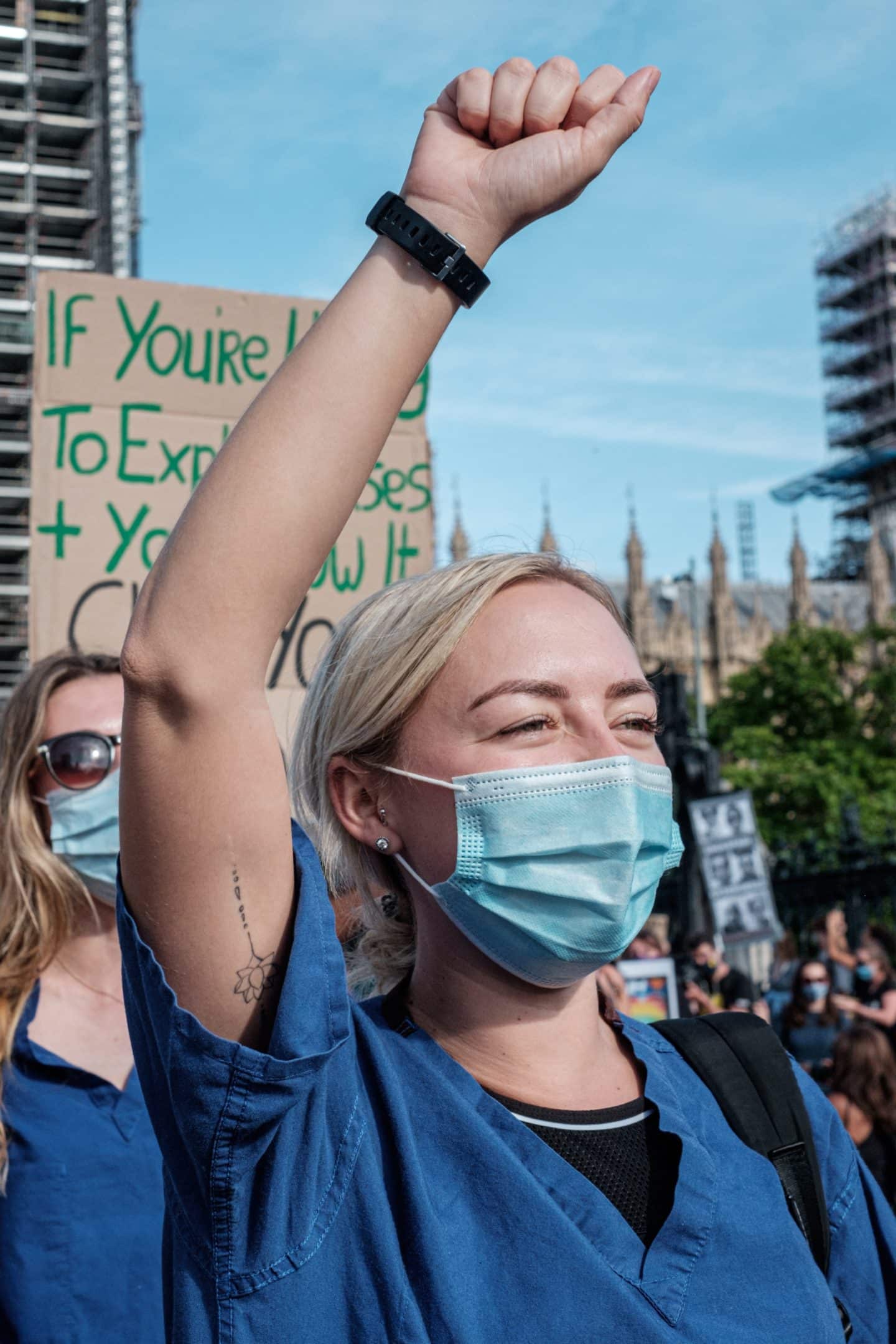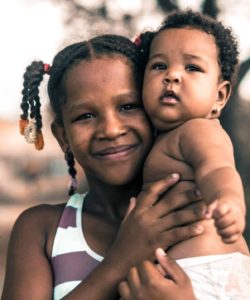What we do
Women in Global Health has four core advocacy priorities:
- Gender equal leadership in global health and going beyond gender parity to Gender Transformative Leadership
- Gender equity in the health and care workforce: including equal representation of women in leadership and decision-making; fair pay and an end to unpaid work in health systems; protection of women health workers from sexual exploitation, abuse and harassment; and protection from harm via effective PPE (personal protective equipment), vaccines and mental health support
- Gender responsive health systems including for Universal Health Coverage (UHC) and pandemic preparedness and response
- Building the WGH movement and alliances for women’s leadership and gender equality in global health
Overcoming challenges in these areas will have far-reaching benefits: strengthening health systems and health security, advancing women’s empowerment and boosting national and global economic growth.


Gender equal leadership
Global health is delivered by women and led by men. Around the world, women make up about 70% of the health workforce, and yet hold only 25% of senior roles. About 70% of global health organizations are headed by men and 80% of board chairs are male.
Why does this matter? When women lose out in health leadership, we all lose. The gender gap in health leadership is not just a ‘women’s problem’. Women expand the agenda in health decision making, bringing their lived experience as women and also their experience working in health systems. We cannot fight global health challenges by drawing from half the talent pool. Diverse decision-making groups make better decisions. We want to see women at the table in equal numbers to men – women from diverse social groups, health professions and geographies. More female leaders will increase the number of female role models and mentors, busting stereotypes of men as ‘natural leaders’. In addition, when women hold senior global health positions, women’s needs tend to be reflected in health policy. And it is not only women who gain. Gender transformative leaders– leaders who overturn gender inequality – build stronger health systems that are better for everybody’s health.
WGH believes that women should be represented equally in decision-making roles across the global health sector because gender equality is the foundation for strong health systems and global health security.
Gender equity in the health and care workforce
Health is one of the biggest and fastest growing economic sectors, employing 234 million people worldwide, the majority of whom are women. We must change the narrative and see women as drivers of global health, not solely as users of health systems. When health systems do not acknowledge that the default health worker is female, no priority is given to addressing gender inequality – workplace policies remain modelled on men’s lives and personal protective equipment (PPE) remains modelled on men’s bodies.
Women know best the health systems they run, providing essential health services to around 5 billion people. But most female health workers are in lower status, lower paid roles. Globally, 80% of nurses are female, however, surgeons are predominantly male. Overall, an average gender pay gap of 24% exists in the health workforce. If data on women’s unpaid health and social care was included, the gender pay gap would significantly widen.
Gender bias and discrimination at the workplace are widespread. Few organizations provide paid maternity leave and many countries lack laws on sex discrimination, equal pay and social protection. Sexual harassment at work is a major problem for female health workers, yet rarely recorded or sanctioned. More female leaders will result in fewer cases of sexual harassment.
An additional 10 million health workers are required to achieve universal health coverage (UHC) by 2030. Clearly, the female health workforce is central to the design and delivery of UHC. Gaps in the supply of health workers will not be closed without addressing gender discrimination in the workforce and investing in decent work for women.
Globally, the burden of unpaid health and social care work typically falls on women and girls. Women contribute US$ 3 trillion annually to global health, almost half of which is unpaid and unrecognized. Community health workers – most of whom are female – play a critical role in health promotion and linking communities to the formal health system. Yet Women in Global Health estimates that at least six million women work in health systems unpaid or grossly underpaid. Some of the world’s poorest women are effectively subsidizing health systems.
WGH believes that women deserve fair pay; safe and decent work free from sexual harassment and violence; family-friendly policies and an equal place in leadership. Women’s unpaid work in the health and social care sector should be recognized, valued and included in the formal labor market.

Movement building
The global team and its network of chapters drive change by mobilizing a diverse group of emerging women health leaders, by advocating existing global health leaders to commit to transforming their own institutions, and by holding these leaders accountable.
WGH works in collaboration with global health and gender equality agencies and organizations such as the World Health Organization, Gavi, Global Fund, and UN Women, and has been featured in Reuters, CNN, NPR, the Lancet and Devex for its work. We maintain a robust presence via in-person and remote events at major global health and international development forums, such as the World Health Assembly, UN High-Level Political Forum, UN General Assembly and World Health Summit.
We are building a movement by:
- Connecting emerging women health leaders around the world to call for gender equality
- Creating a platform for dialogue through events and workshops on leadership Promoting career advancement and creating opportunities for mentorship
- Providing tools and resources for the WGH network to take action
Gender-responsive health systems
 We focus on gender responsive health systems including for Universal Health Coverage (UHC) and pandemic preparedness and response. Underinvestment in the female health workforce means health systems are often inefficient. As disease burdens change and populations age, health systems need to adapt and invest the most productive use of human resources for health (HRH), in many cases expanding the responsibilities of lower-grade medical staff and paramedics through task shifting.
We focus on gender responsive health systems including for Universal Health Coverage (UHC) and pandemic preparedness and response. Underinvestment in the female health workforce means health systems are often inefficient. As disease burdens change and populations age, health systems need to adapt and invest the most productive use of human resources for health (HRH), in many cases expanding the responsibilities of lower-grade medical staff and paramedics through task shifting.
Pandemic preparedness and response is currently being debated at different levels in numerous global fora/platforms. The current working draft of the Pandemic Instrument (“treaty” or “accord”) includes some points on gender equality in leadership; robust, skilled workforce; and UHC for health systems resilience. We are working to ensure it also includes commitments to protect health workers, (safe and decent working conditions, free from violence, PPE); gender-equal leadership; and continuity of essential health services (especially Sexual and Reproductive Health Rights, maternal, neonatal and child health, etc.) in emergencies.
WGH was very involved in the High-Level Meeting in 2019, and came up with the “7th ask” on ensuring gender equity in UHC. We have a place on the UHC2030 task force and co-convene the Alliance on Gender Equality and UHC (with Women Deliver and Spectra Rwanda) of around 200 NGOs. Read more about our activities in our advocacy section.
